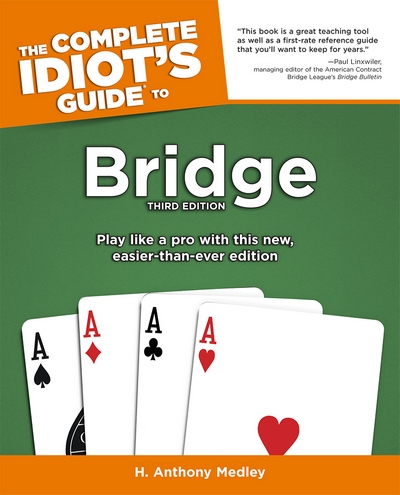| The first and second editions of Complete Idiot's Guide to Bridge by H. Anthony Medley comprised the fastest selling beginning bridge book, going through more than 10 printings. This updated Third Edition includes a detailed Guide to Bids and Responses, along with the most detailed, 12-page Glossary ever published, as well as examples to make learning the game even easier. Click book to order. Available in all bookstores and on Kindle. | ||
|
The Young Karl Marx Le Jeune Karl Marx (2/10) by Tony Medley Runtime 118 minutes This was actually a pretty good idea, making a biopic about Karl Marx, but not the old man Karl Marx with a long beard who looked like Herman Melville (all those 19th century guys with their long beards look alike). No, this is about an energetic twentysomething Karl Marx (August Diehl) of whom the world has not yet heard, covering the years 1843Ė50. We also meet his partner, a youthful Friedrich Engels (Stefan Konarski). Director and cowriter (with Pascal Bonitzer) Raoul (I Am Not Your Negro) Peck created this tale using the actual correspondence among the people involved including voluminous letters between Marx and Engels themselves. It should have been a fascinating story but what Peck has produced is the opposite, extraordinarily boring. And thatís amazing because Engelsí father was a rich industrialist and Marx was a revolutionary thinker whose ideas did have a huge effect on the world. To make the story of the struggle of Marx and Engels as uninvolving as this film is mind-boggling. It failed the watch test dramatically. I have no quarrel with the facts presented; it's the presentation itself that misses the mark. It fails to convey all the tension that was obviously there; at least I didn't feel it and neither did my assistant who accompanied me to the screening. As I was watching the film, one thing that stood out is that both of the women involved with Marx and Engels, Jenny von Westphalen-Marx and Mary Burns, are played by beautiful actresses, Vicky Krieps and Hannah Steele, respectively. I was thinking, yeah, sure, these women were probably frumpy 19th century women. But at the end there are photographs of all the principals, and the real Jenny and Mary indeed appeared in the pictures, at least, to be of comparable beauty as the women who portrayed them. In fact, the best part of the movie is the few moments when we see what Marx, Engels, and all the other historical figures really looked like when they were young. The movie reminded me of last yearís Dunkirk, an opportunity squandered, a failure to capture the essence of what actually happened. In addition to that, itís yet another movie thatís filmed so darkly that it would have been better in black and white. Why do some of todayís filmmakers eschew color and light? If this doesnít put you to sleep, nothing will.
|
||
